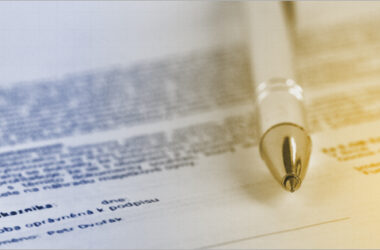Public liability insurance serves as a crucial safety net for businesses in India. It provides them the much-needed protection against legal liabilities arising from third-party bodily injury, property damage, or other unforeseen incidents. However, filing a claim with this type of insurance can be complex and daunting at times. If you have acquired public liability insurance for your business, you will agree to this.
This blog explores certain common mistakes policyholders often make when filing a public liability insurance claim. By avoiding these mistakes, you can ensure a smoother claims experience and maximize the chances of a successful resolution.
Common Mistakes You Should Avoid When Filing a Public Liability Insurance Claim
Here are some common mistakes you should avoid:
- Delay in Reporting the Incident: One of the most common mistakes businesses make is delaying the reporting of the incident to the insurance company. Timeliness is key when it comes to filing an insurance claim, as insurers often have specific timeframes within which claims must be reported. Failing to report the incident promptly could lead to the rejection of the claim or delays in processing. Thus, it affects the business’s ability to receive compensation for damages or liabilities incurred.
- Incomplete or Inaccurate Documentation: Insufficient documentation is another common stumbling block in the claims process. Businesses must ensure that they gather and submit all relevant documentation related to the incident. These may include incident reports, witness statements, photographs, medical records (if applicable), and any other evidence that supports the claim. Moreover, it’s crucial to provide accurate information to the insurance company, as any discrepancies or inaccuracies could raise red flags and delay the processing of the claim.
- Failure to Preserve Evidence: Preserving evidence is essential to substantiate the public liability insurance claim and demonstrate liability in the event of a dispute. Businesses should take immediate steps to preserve any physical evidence, such as damaged property or equipment, and secure relevant documentation, such as CCTV footage or incident reports. Failure to preserve evidence could weaken the claim and undermine the business’s ability to recover compensation for losses incurred.
- Lack of Understanding of Policy Coverage: Another common mistake is the failure to fully understand the scope of coverage provided by the public liability insurance policy. Each policy may have specific terms, conditions, and exclusions that dictate the extent of coverage for different types of liabilities. Businesses should review their insurance policy carefully and seek clarification from the insurer if they have any doubts regarding coverage. This proactive approach can help avoid misunderstandings and ensure that the claim is filed correctly under the applicable coverage provisions.
- Neglecting Legal Obligations: Businesses must fulfill their legal obligations and regulatory requirements when filing a public liability insurance claim. This includes complying with any statutory reporting obligations, such as notifying the relevant authorities or regulatory bodies of the incident. They should also cooperate fully with investigations or inquiries that may arise. Failure to meet these obligations could result in penalties or sanctions, in addition to complicating the claims process.
- Underestimating Damages or Liabilities: It’s essential for businesses to accurately assess the extent of damages or liabilities resulting from the incident when filing a claim. Underestimating the value of losses or liabilities could result in inadequate compensation, leaving the business to bear the remaining costs out-of-pocket. Businesses should engage qualified professionals, such as loss adjusters or legal advisors, to assist in evaluating damages. Thus, they can ensure that all losses are properly documented and accounted for in the claim.
- Neglecting to Seek Professional Assistance: Filing a public liability insurance claim can be a complex and daunting process, particularly for businesses without prior experience in handling insurance claims. Neglecting to seek professional assistance from insurance brokers, legal advisors, or claims consultants could leave businesses vulnerable to mistakes. These could impact the outcome of the claim. Engaging experienced professionals can provide businesses with invaluable guidance and support throughout the claims process. This can increase the likelihood of a favorable outcome.
- Failing to Mitigate Losses: Businesses have a duty to take reasonable steps to mitigate their losses following an incident covered by public liability insurance. Failing to mitigate losses could result in the insurer reducing the amount of compensation payable under the policy. Businesses should promptly take action to prevent further damage or injury, such as implementing temporary repairs, securing the premises, or providing medical treatment to injured parties. Documenting these mitigation efforts is also important for supporting the claim and demonstrating compliance with the policy terms.
The Footnote:
Navigating the public liability insurance claims process requires diligence, attention to detail, and a thorough understanding of the policy terms and procedures. By avoiding the common mistakes discussed above, businesses can enhance their chances of successfully recovering compensation for losses incurred. Seeking professional assistance and taking proactive steps to preserve evidence, understand policy coverage, and mitigate losses can further streamline the claims process. All these can help businesses achieve a favorable outcome.







